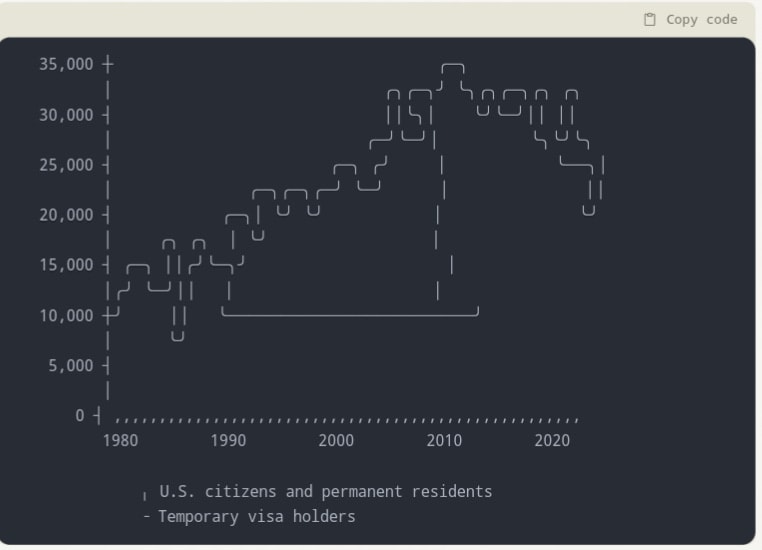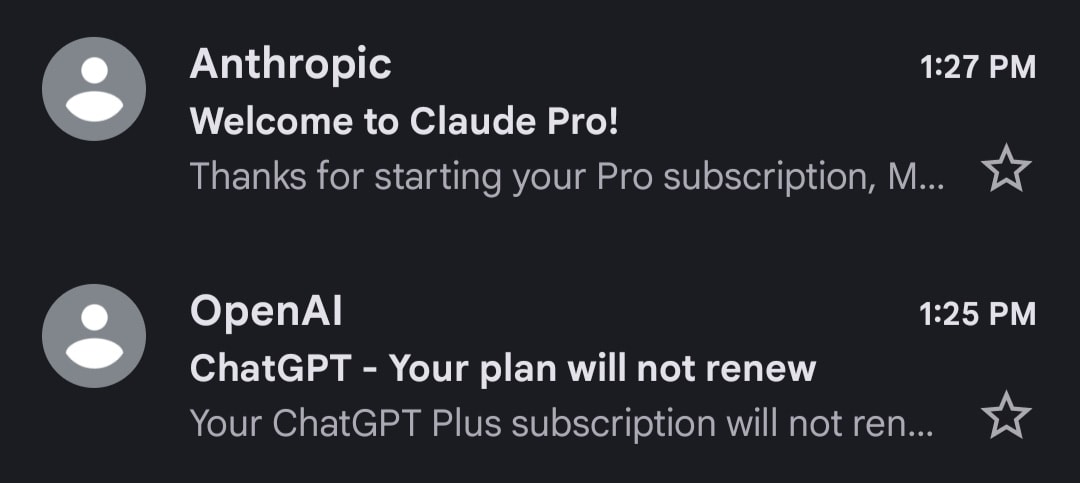Ever since ChatGPT released to the public I have used LLMs every day. GPT-4 was essential in getting me up and running at my job where I had to read and edit pieces of Python, SQL, Unix, and Stata code with little to no prior experience. Beyond coding I’ve had some success using GPT to collect links and sources. For writing, GPT’s only use is translating terse bullet points into polite emails and producing blog post drafts so terrible that I forget my writer’s block and rush to correct it.
The worst part about GPT is its personality. It is a lazy, lying, moralist midwit. Everything it writes is full of nauseating cliche and it frequently refuses to do something you know it can do. Most of these disabilities were tacked on to GPT as part of the reinforcement learning which tamed the fascinating LLM shoggoth into an intermittently useful, helpful harmless sludge which never says anything bad.
This made me suspicious of Anthropic’s models. This company was founded by safety-concerned offshoots of OpenAI who left after the for profit arm of OpenAI was created and GPT-2 was open sourced despite the grave dangers it posed to the world. Their explicit mission is to advance the frontier of AI safety without advancing capabilities so I figured their models would have all of the safetyist annoyances of GPT without any of the usefulness.
Claude Opus proved me wrong. For the past week, every time I asked GPT something I asked Claude the same question. The biggest advantage Claude has over GPT is a more concise writing style. Claude gets to the point quickly and it usually gets it right. Even though writing isn’t the main task I use LLMs for, this advantage is massive. All of GPT’s extra fluff sentences add up to a frustrating experience even when you’re just coding.
Claude can’t search the web, but it’s still better at serving up relevant links than GPT for anything within its training window. Claude’s code is high quality, though GPT is also strong here and I only have enough experience to evaluate R code.
GPT’s Remaining Moat
GPT still has several features that Claude can’t match. The biggest gap is image generation. I mostly just use this to make thumbnails for my blog posts but it’s nice to have and it’s not something Anthropic seems likely to replicate any time soon.
Claude also can’t execute the code it writes yet, though I expect this is coming soon. Here’s Claude trying to graph some data for me in ASCII. Admirable effort and surprisingly accurate, but not very useful.
GPT still has more features than Claude but for the thing they share, Claude is a clear winner. There are some extra features unique to Claude that I haven’t tried yet, though. The sub-agents capability shown in this video of Claude as an Economic Analyst seem powerful. The Claude API and prompt workshop looks nice too.
If GPT-5 releases I will probably resubscribe and test it out. I wouldn’t be surprised if future developments make the different offerings complements rather than substitutes, e.g with one specializing in image generation and another in code. But for now:


Executive summary: The post compares the performance and capabilities of Claude, an AI model developed by Anthropic, with GPT models, particularly in the context of coding, writing, and information retrieval tasks.
Key points:
The author found GPT models useful for coding tasks and information gathering but found their writing output lacking in quality and conciseness.
Claude, despite being developed by a company focused on AI safety, proved to be more concise and accurate in its writing compared to GPT models.
Claude excels at providing relevant links and high-quality code, although GPT is also strong in coding tasks.
GPT still maintains an advantage in image generation capabilities, which Claude currently lacks.
The author expects future developments to make different AI models complementary, with each specializing in different tasks.
The author plans to test GPT-5 when it is released but currently prefers Claude over GPT models for most tasks.
This comment was auto-generated by the EA Forum Team. Feel free to point out issues with this summary by replying to the comment, and contact us if you have feedback.